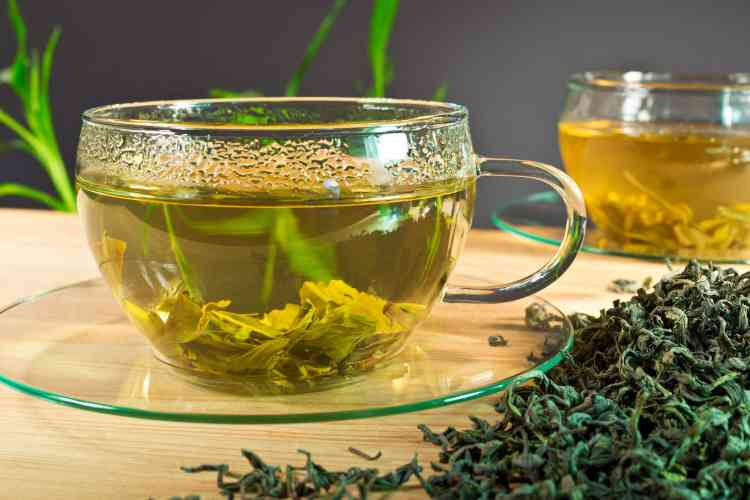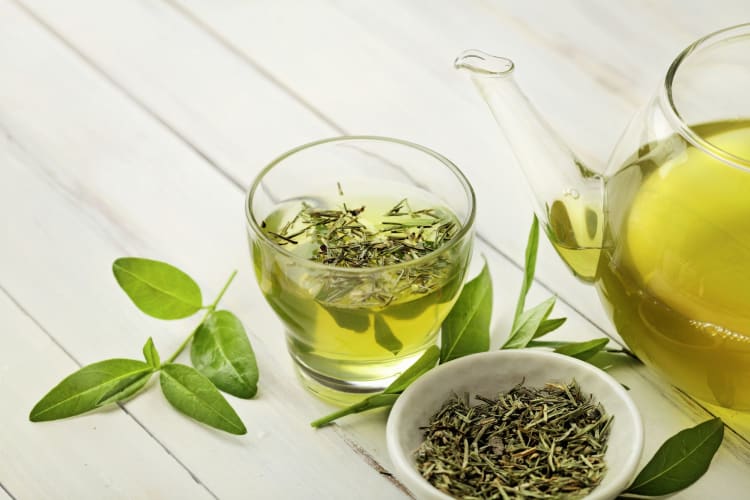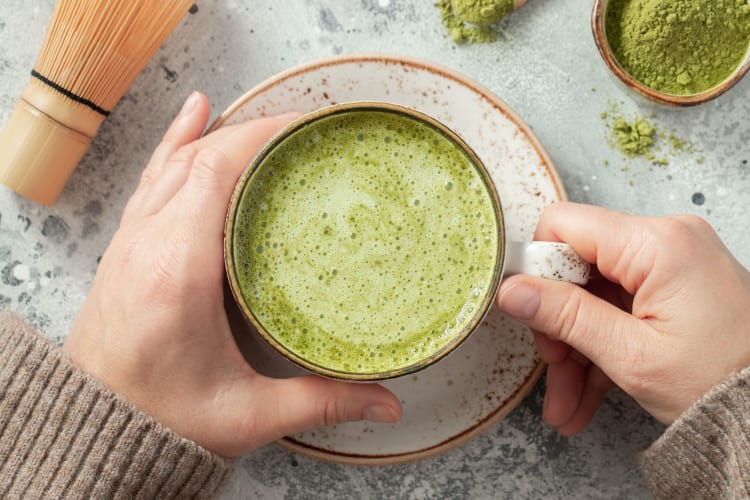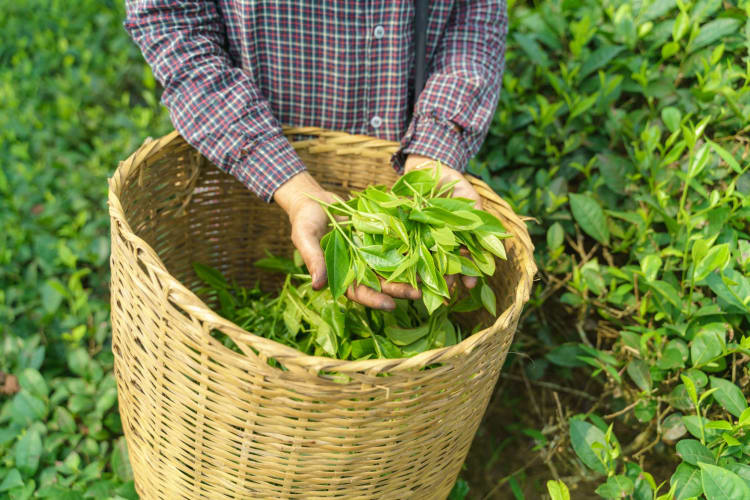Does Green Tea Have Caffeine?

You’ve heard about the health benefits of green tea and you know it tastes good, but does green tea have caffeine? Can you switch from coffee to green tea and not feel like you’re going to fall asleep at work? The answer to both questions is yes. Green tea does have caffeine but not as much as other popular caffeinated beverages. It’s a great choice for those who want to cut back from coffee or energy drinks that aren’t very healthy and that leave you feeling jittery.
What exactly is green tea? Are matcha and green tea the same thing? How much caffeine is in green tea? Green tea has been around for centuries, and although green tea does have caffeine, it also has a variety of medicinal benefits. It’s one of the least processed forms of tea, and it has a milder flavor that appeals to many people.
- Does Green Tea Have Caffeine?
- How Much Caffeine Is in Green Tea?
- How Much Caffeine Is Safe To Drink?
Does Green Tea Have Caffeine?
If you’re looking for an alternative to coffee, consider switching to green tea. Green tea is made from the camellia sinensis plant and is one of the least processed forms of tea available. It’s been around since 2700 B.C. and has been used for medicinal purposes in Asia for centuries. Green tea is also believed to have many health benefits and can be part of maintaining a balanced diet.
But does green tea have caffeine? Will it do the trick to start your day off the way coffee does?
Green tea does contain caffeine. Even when a tea is marked as decaffeinated, it still contains small amounts. Green tea is made by steaming, pan frying and drying the leaves, which provides a milder, grassy flavor compared to black or oolong teas which are made by withering and oxidizing the leaves.
The amount of caffeine in any tea is dependent upon several factors including the climate conditions where the plant is grown, harvest times, drying methods and preparation of the actual tea (hot versus cold brewed).
Green tea does have caffeine, but it also has a variety of health benefits. It contains polyphenols which are antioxidants and green tea may enhance cognitive function due to its content of the amino acid L-theanine. It's worth noting that green tea contains this amino acid, which works synergistically with caffeine to improve alertness and concentration more effectively than caffeine alone. L-theanine has also been shown to have various other benefits, including promoting relaxation and reducing stress. Some studies have shown that green tea can positively enhance metabolism when combined with exercise. And there is some evidence that drinking green tea may lower your risk of cancer, though more research is needed in this area.
If you’re looking for green tea with caffeine, keep an eye out for matcha too. You might be wondering, what is matcha? It’s a powdered form of green tea. Matcha is commonly available in stores and at coffee counters and it can be used in a variety of recipes to deliver the green tea caffeine jolt you want.

How Much Caffeine Is in Green Tea?
How much caffeine is in green tea? How does it compare to home-brewed coffee, espresso or energy drinks? The following amounts are based on an eight ounce portion of each beverage.
Caffeine Comparison of Popular Beverages
- Instant coffee — 27 mg to 173 mg
- Green tea — 30 mg to 50 mg
- Black tea — 25 mg to 110 mg
- Black coffee — 100 mg to 200 mg
- Espresso — 240 mg to 720 mg
- Yerba mate — 65 mg to 130 mg
- Soft drinks — 25 mg to 35 mg
- Energy drinks — 72 mg to 80 mg

How Much Caffeine Is Safe To Drink?
Now that you know green tea does have caffeine, it’s a good time to check in on how much caffeine is too much.
Caffeine is a stimulant but consumed in moderation it isn’t harmful. That said, excessive caffeine intake can lead to unpleasant jittery side effects for many people. So, even though green tea does have caffeine, it’s usually more tolerable than coffee or espresso.
For adults, as long as you are consuming under 400 mg of caffeine a day, you’re staying in the safe zone. But that translates to only one espresso beverage per day depending on size. Or two to three cups of black coffee, ideally spaced out over a few hours. As green tea does have less caffeine than coffee or energy drinks, you can consume more and stay under the recommended limit. So if you like to sip throughout the day, green tea is a great alternative to coffee or energy drinks.

Green tea is not only lower in caffeine than many other popular beverages, but it’s also healthy and tasty. Those who don’t love the bitter taste of stronger hot teas may find that green tea is a more pleasing option. And because green tea does have caffeine, you’ll still get a little burst of energy while enjoying it.
For even more ways to explore your favorite foods and drinks, check out other experiences happening on Cozymeal.




